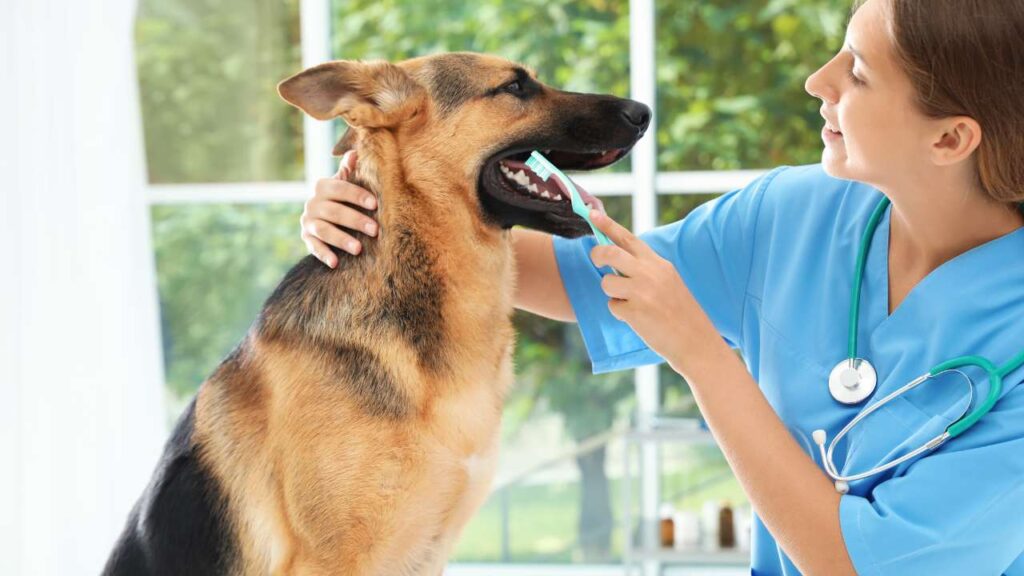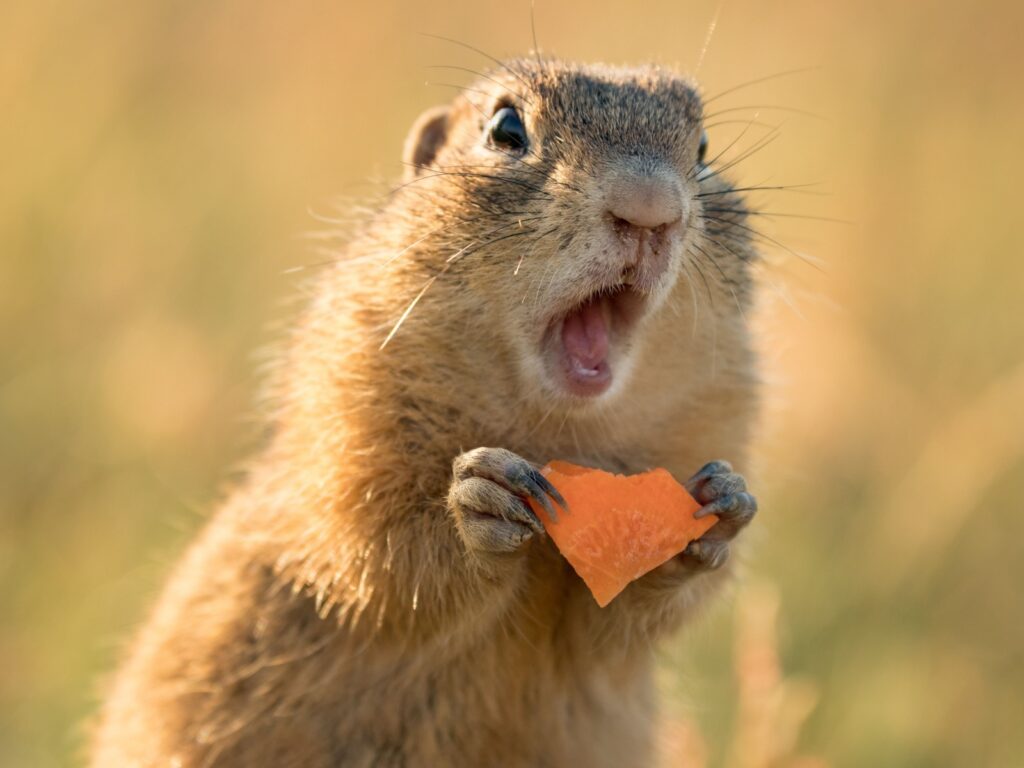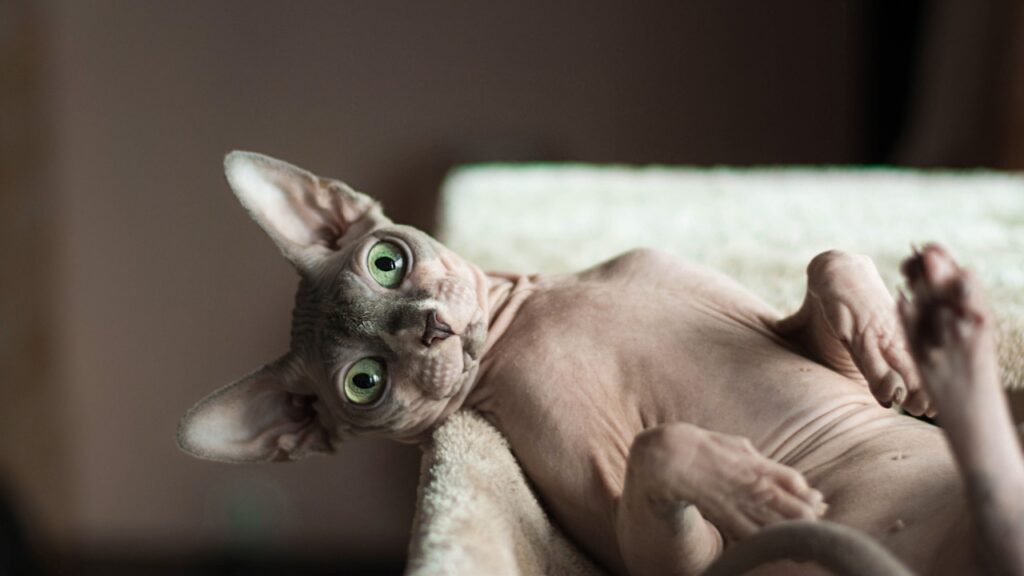Just like humans, our beloved pets need proper dental care to maintain healthy smiles and avoid potential health issues. By following these 12 essential tips, you can help keep your pet’s teeth and gums in top condition, ensuring a lifetime of happy, healthy smiles.
1. Brush Your Pet’s Teeth Regularly

Daily brushing is the foundation of a good oral care regimen for your dog. Use a pet-friendly toothbrush and toothpaste to gently brush your pet’s teeth, focusing on the gum line where plaque tends to accumulate. Make it a positive experience with plenty of praise and rewards.
2. Provide Dental Chews and Toys
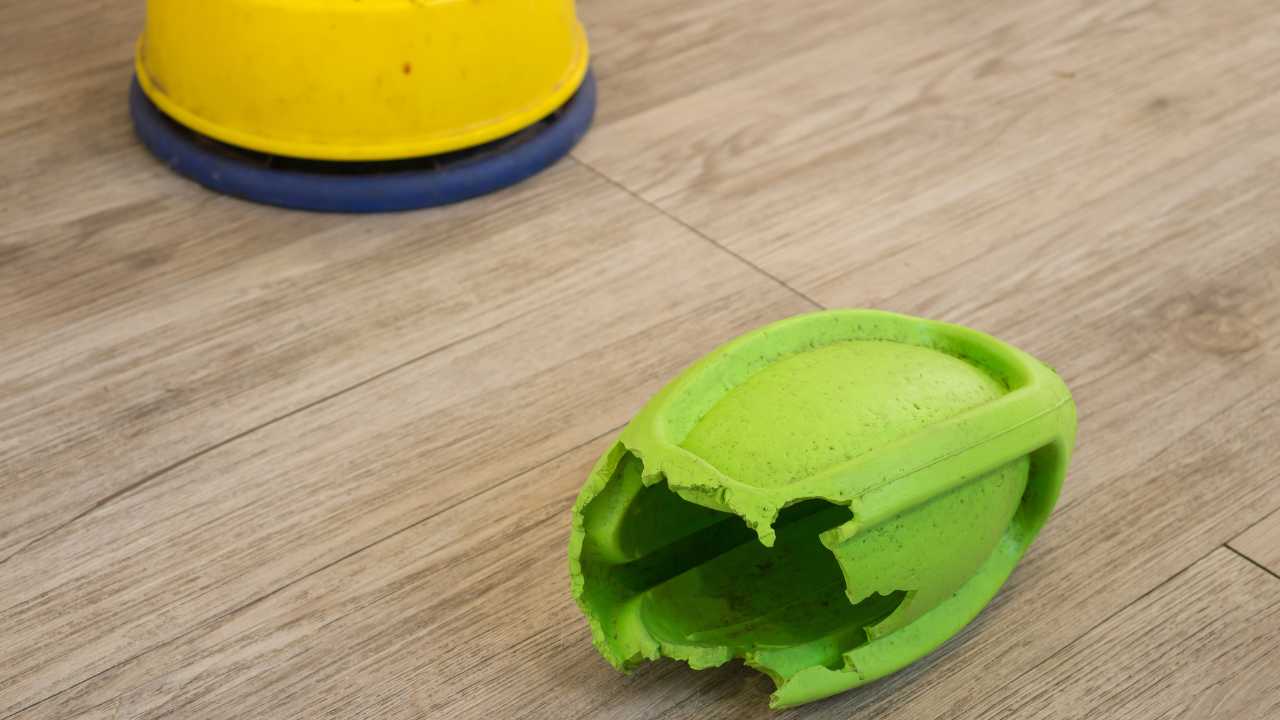
Dental chews and toys can help remove plaque and tartar buildup while keeping your pet entertained. Look for products specifically designed for dental health, such as rubber chew toys, dental treats, and interactive puzzles that encourage chewing.
3. Feed a Balanced Diet
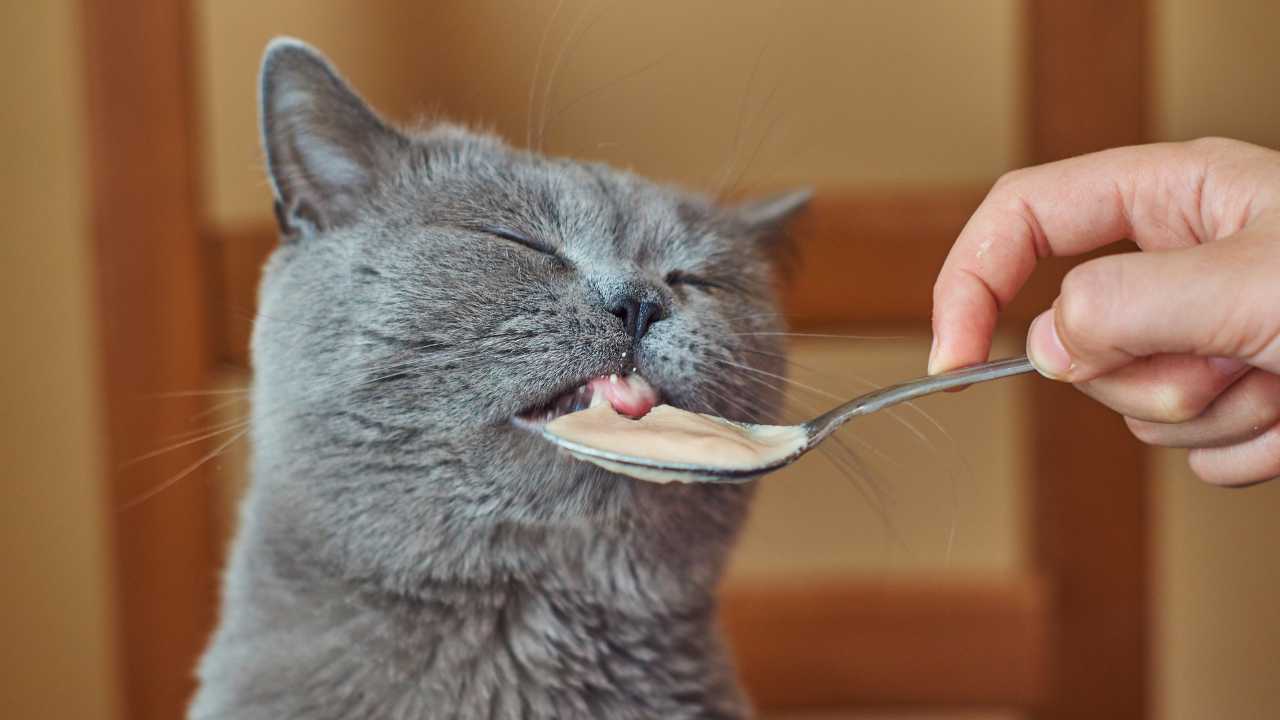
A balanced, species-appropriate diet is essential for maintaining your pet’s overall health, including their dental health. Feed them a diet that is appropriate for their age, size, and activity level, and consider incorporating dental-friendly foods or supplements as recommended by your veterinarian.
4. Schedule Regular Dental Check-Ups

Regular dental check-ups with your veterinarian are crucial for identifying and addressing any potential dental issues early on. During these check-ups, your vet will examine your pet’s teeth and gums, and may recommend professional cleaning or other treatments if necessary.
5. Know the Signs of Dental Problems

Familiarize yourself with the signs of dental problems in pets, such as bad breath, excessive drooling, difficulty eating, and visible tartar buildup. If you notice any of these signs, schedule an appointment with your veterinarian promptly to address the issue.
6. Consider Dental Supplements
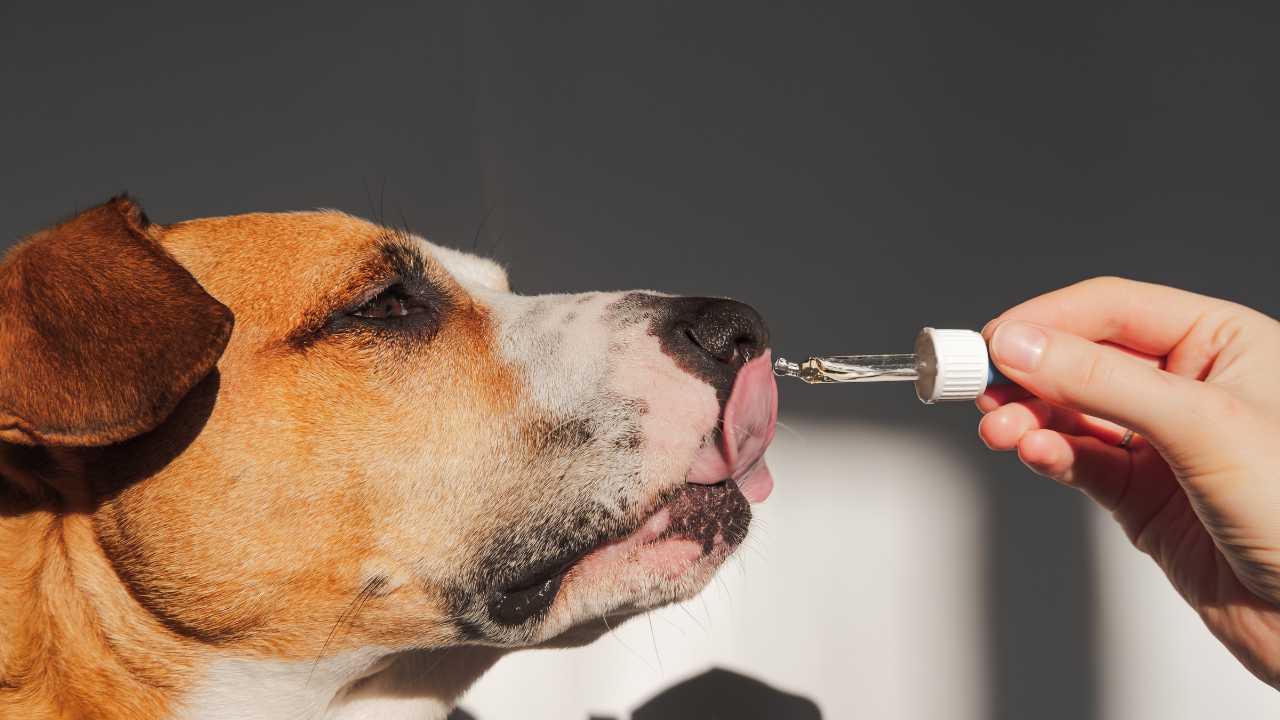
Dental supplements, such as water additives or oral gels, can help reduce plaque and tartar buildup between brushings. Talk to your veterinarian about which supplements may be appropriate for your pet’s specific needs.
7. Offer Dental-Friendly Treats

In addition to dental chews, offer your pet dental-friendly treats that are specifically formulated to promote oral health. These treats often contain ingredients that help reduce plaque and freshen breath.
8. Avoid Table Scraps
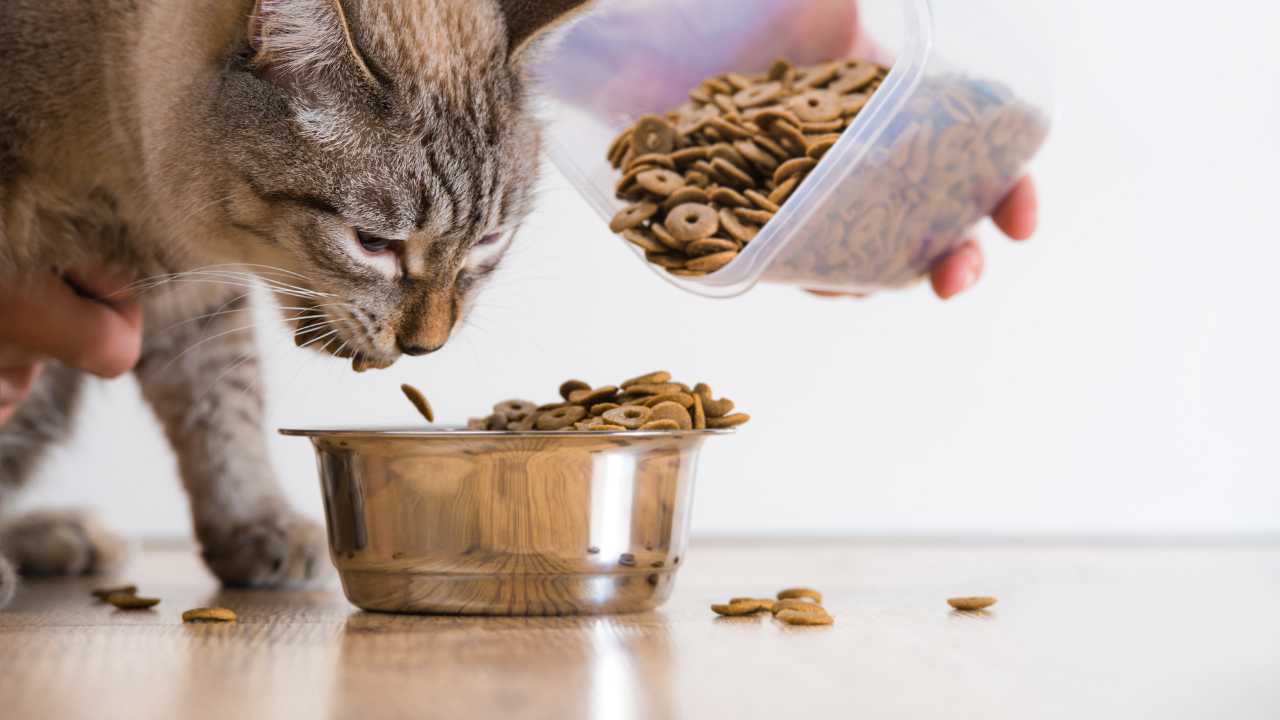
Table scraps and human foods can contribute to dental problems in pets, as many of these foods are high in sugar and can stick to teeth, promoting bacterial growth. Stick to pet-specific treats and foods to maintain your pet’s dental health.
9. Establish a Dental Care Routine
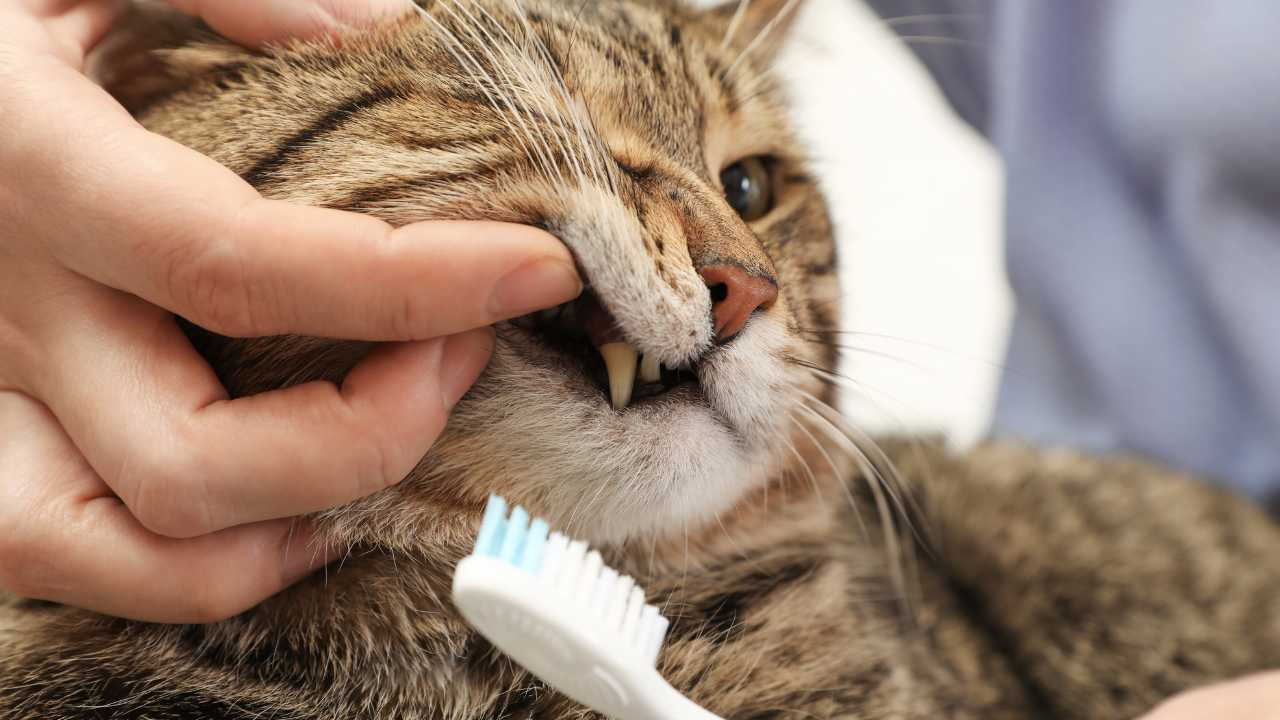
Establishing a consistent dental care routine is key to maintaining your pet’s oral health. Set aside time each day for brushing, and make it a positive experience with plenty of praise and rewards. Consistency is crucial for preventing dental issues.
10. Monitor Your Pet’s Dental Health
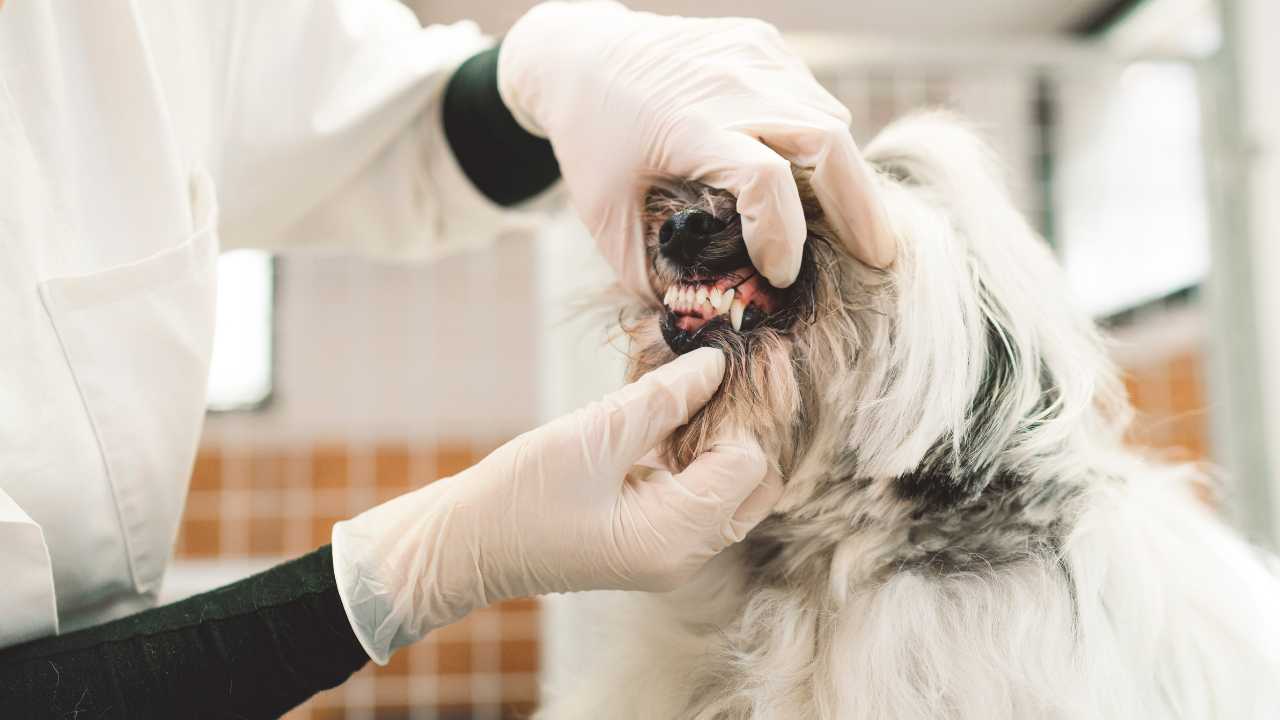
Regularly inspect your pet’s teeth and gums for signs of dental problems, such as redness, swelling, or visible tartar buildup. If you notice any changes or concerns, schedule an appointment with your veterinarian promptly.
11. Consider Professional Dental Cleanings

Just like humans, pets require routine cleanings to remove stubborn tartar and plaque buildup that can’t be addressed through brushing alone. Talk to your veterinarian about how often your pet should receive professional dental cleanings based on their individual needs.
12. Start Early
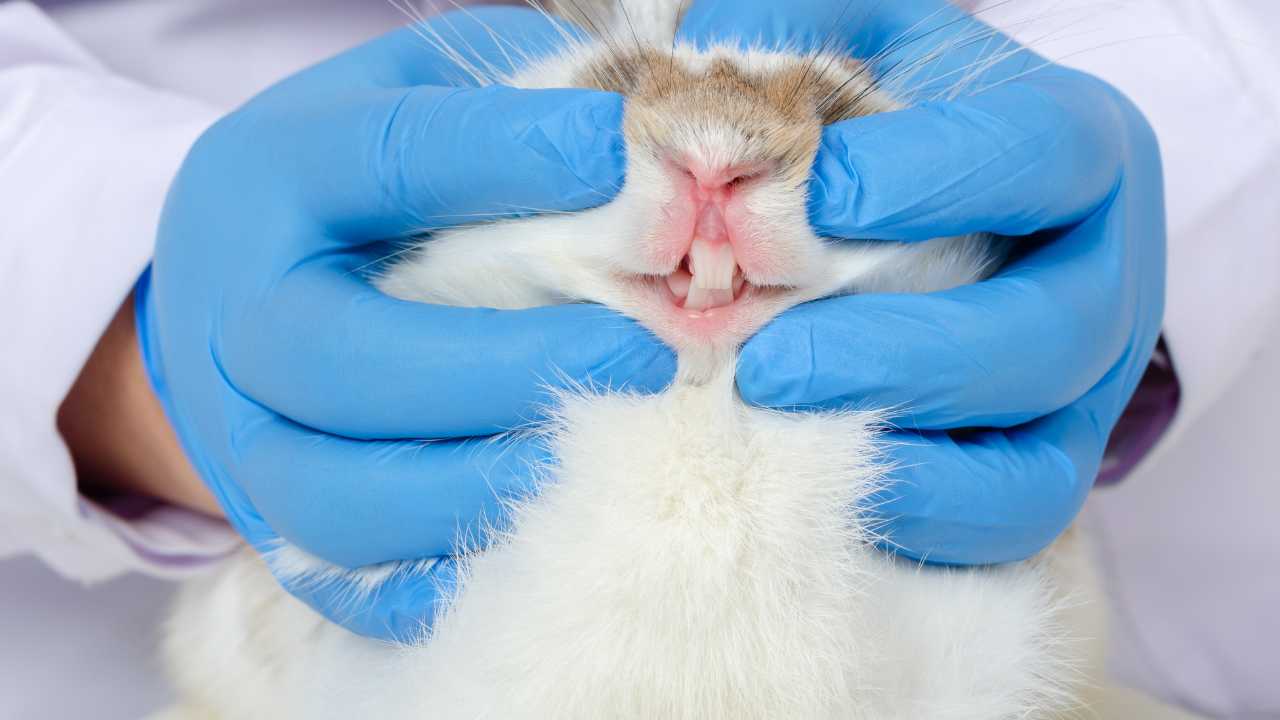
The earlier you start incorporating dental care into your pet’s routine, the easier it will be to maintain their oral health throughout their life. Begin brushing your pet’s teeth and introducing dental-friendly toys and treats from a young age to help them become accustomed to the process.
Becky is a fervent wildlife enthusiast and pet care expert with a diploma in canine nutrition. Her love for animals stretches beyond the domestic, embracing the wild tapestry of global fauna. With over a decade of experience in animal welfare, Becky lends her expertise to OutlandishOwl through insightful articles, captivating wildlife information, and invaluable guidance on pet nutrition. Her work embodies a deep commitment to understanding the intricate lives of animals and a passion for educating others on sustaining natural habitats. Becky's hands-on conservation efforts and her knack for translating complex dietary science into practical pet feeding tips make her an indispensable voice for creatures great and small.

